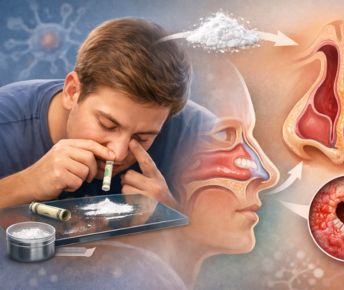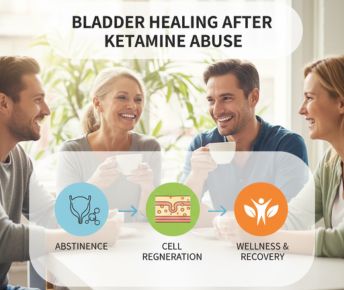Introduction
Heroin addiction is one of the most devastating forms of substance abuse, often profoundly intertwined with trauma disorders. Many individuals struggling with heroin addiction have experienced trauma in some form—whether physical, emotional, or psychological—which fuels their substance dependence. The relationship between trauma and heroin addiction is cyclical: trauma often leads to self-medication through drug use, and drug use can lead to further trauma, reinforcing the cycle.
To achieve long-term recovery, it is essential to address both heroin addiction treatment and trauma therapy simultaneously. In this article, we will explore the connection between trauma and heroin addiction, common heroin withdrawal symptoms, and the role of trauma treatment in helping individuals break free from this destructive cycle.
The Link Between Trauma and Heroin Addiction
How Trauma Fuels Heroin Addiction
Experiencing trauma—such as childhood abuse, neglect, violence, or significant loss—can cause deep psychological wounds. If left untreated, trauma can manifest in various ways, including anxiety, depression, PTSD, and emotional dysregulation. Many individuals turn to heroin or other drugs to numb emotional pain and temporarily escape their distress.
Heroin, a powerful opioid, produces intense euphoria and relaxation, making it particularly appealing to individuals with unresolved trauma disorders. Unfortunately, this relief is temporary, and continued use leads to tolerance, dependence, and ultimately addiction.
The Cycle of Trauma and Heroin Addiction
- Trauma Occurs – A person experiences emotional or physical trauma.
- Coping Through Heroin Use – To escape painful memories or emotions, they use heroin.
- Addiction Develops – The body becomes dependent on heroin, making it harder to quit.
- More Trauma Happens – Addiction leads to risky behaviours and worsens emotional pain.
- Reinforcement of Drug Use – To cope with new and old trauma, they continue using heroin.
Breaking this cycle requires comprehensive treatment that addresses both the addiction and the underlying trauma.
The Role of Trauma in Heroin Addiction: Key Psychological Factors
Trauma Bonds and Drug Addiction
A trauma bond is a psychological attachment that forms between an individual and an abuser, often making it difficult for them to leave toxic relationships. Similarly, drug addiction mimics a trauma bond, as the individual feels psychologically attached to heroin despite its destructive effects.
- Just as trauma bonds keep individuals trapped in unhealthy relationships, heroin addiction keeps individuals emotionally and physically trapped in a cycle of dependence.
- The brain associates heroin with relief from trauma, reinforcing the urge to use.
Why Am I Addicted to Trauma?
Some individuals develop an addiction to chaos and trauma because they have been conditioned to associate dysfunction with normalcy. This can make them more vulnerable to drug abuse as a coping mechanism.
- Childhood trauma survivors may struggle to live without dysfunction or chaos, leading them to seek out intense experiences like heroin use.
- Unresolved trauma can create a sense of emotional numbness, leading people to chase highs as a way to feel something again.
The Dangers of Self-Medicating Trauma with Heroin
Self-medicating trauma disorders with heroin leads to short-term relief but long-term consequences, including:
- Physical dependence and heroin withdrawal symptoms
- Higher risk of overdose
- Increased anxiety and depression
- Greater likelihood of experiencing additional trauma
Because heroin does not heal trauma—it only masks it—proper trauma treatment is crucial for recovery.
Heroin Addiction Treatment: The Importance of Dual Diagnosis Care
For individuals struggling with both heroin addiction and trauma, traditional detox alone is not enough. Dual diagnosis treatment—which addresses both drug addiction and underlying mental health issues—is essential.
Heroin Withdrawal Symptoms and Medical Detox
Heroin withdrawal can be intense and requires medically supervised detox at a drug rehabilitation centre or rehab centre for drugs.
Common Withdrawal Symptoms:
- Muscle pain and body aches
- Nausea, vomiting, and diarrhea
- Anxiety and panic attacks
- Depression and suicidal thoughts
- Strong cravings for heroin
Because withdrawal can trigger trauma symptoms, detox should always be accompanied by trauma therapy to ensure emotional stability.
Trauma Therapy and Addiction Recovery
Treating heroin addiction without addressing underlying trauma significantly increases the risk of relapse. Trauma therapy is essential in helping individuals understand and process their past experiences.
- Cognitive Behavioral Therapy (CBT) – Helps individuals reframe negative thought patterns linked to trauma and addiction.
- Dialectical Behavior Therapy (DBT) – Focuses on emotional regulation and distress tolerance.
- Eye Movement Desensitization and Reprocessing (EMDR) – Used to reprocess traumatic memories so they no longer trigger drug use.
- Group Therapy – Provides peer support and helps individuals realise they are not alone in their struggles.
Drug Rehabilitation Centers and Comprehensive Care
Many individuals struggling with heroin addiction and trauma benefit from inpatient treatment at a drug-addiction centre or drug-addiction treatment centre.
A structured rehab program provides:
- A safe, drug-free environment
- 24/7 medical supervision during withdrawal
- Intensive trauma therapy sessions
- Relapse prevention strategies
For long-term recovery, ongoing therapy, peer support, and structured relapse prevention plans are critical.
How to Overcome Trauma and Addiction: Steps to Recovery
Acknowledge the Link Between Trauma and Addiction
Recognising that heroin addiction is often a symptom of more profound emotional pain is the first step toward healing.
Seek Professional Help
A combination of trauma-focused therapy and addiction treatment is essential for recovery. Look for a drug rehabilitation centre that offers integrated care for both issues.
Build Healthy Coping Mechanisms
Replacing heroin use with positive coping strategies—such as mindfulness, exercise, or creative outlets—helps individuals manage trauma symptoms without self-medicating.
Create a Strong Support System
Joining support groups, connecting with trauma-informed therapists, and building a network of sober friends can provide long-term stability.
Develop a Relapse Prevention Plan
Understanding personal triggers, learning healthy stress management techniques, and practising self-care can significantly reduce the chances of relapse.
Conclusion
The connection between trauma and heroin addiction is profound, but healing is possible with the proper support. By addressing both the addiction and the trauma disorder, individuals can achieve lasting recovery and break free from the cycle of self-destruction.
Whether seeking help at a drug rehabilitation centre, attending trauma therapy, or working with an addiction specialist, the key to recovery is treating the root cause of addiction—not just the symptoms. If you or someone you know is struggling, reach out to a drug-addiction centre today. Recovery is possible, and healing starts with the first step.
How Can Samarpan Help?
At Samarpan, we understand that trauma often plays a critical role in fueling heroin addiction, making recovery a complex and multifaceted process. Our comprehensive drug rehabilitation programs eemphasise mentalhealth awareness and are designed to address the emotional scars of trauma that can trigger drug addiction. We offer personalised drug addiction therapy and de-addiction therapy to help individuals manage substance withdrawal symptoms and rebuild their lives. For clients who also struggle with alcohol-related issues, our state-of-the-art drug recovery centre provides effective alcohol detoxification and targeted alcohol withdrawal relief to manage alcohol withdrawal relief symptoms safely. Additionally, our holistic approach includes health nutrition and supplements for recovery to support overall well-being throughout the journey. At Samarpan, our dedicated team is committed to guiding you through every step of recovery, helping you break free from the cycle of addiction and heal from trauma with compassionate, evidence-based care.
























 Yes, many offer serene environments and solid therapeutic frameworks. However, quality varies, so it’s essential to research accreditation, staff credentials, and therapeutic depth.
Yes, many offer serene environments and solid therapeutic frameworks. However, quality varies, so it’s essential to research accreditation, staff credentials, and therapeutic depth.




